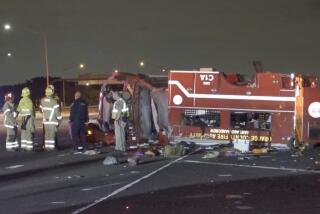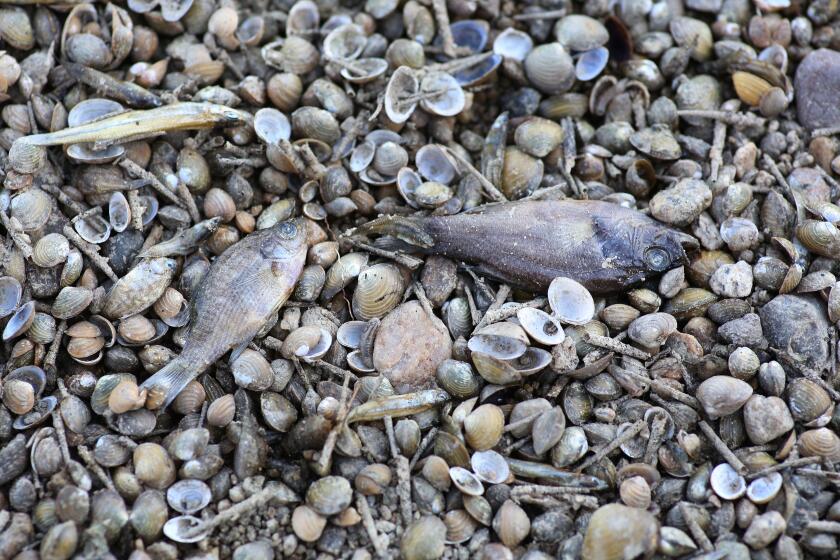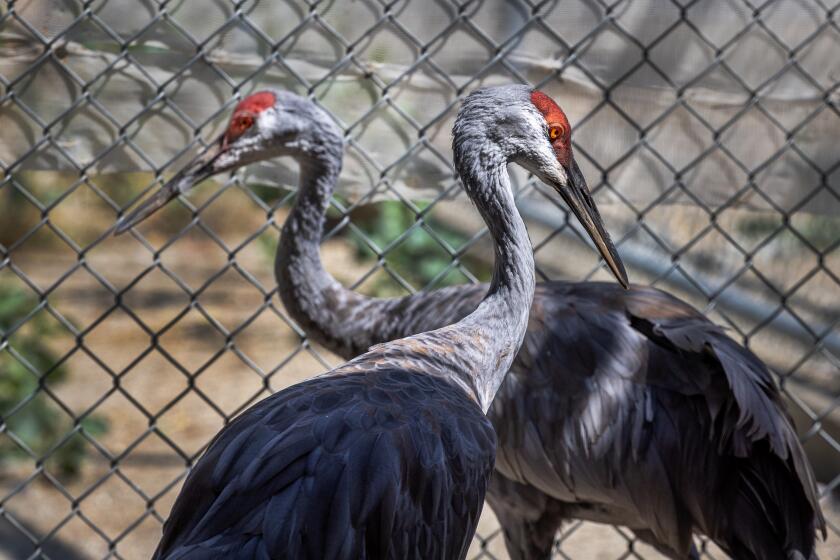Uncontaminated Sources of Food Vital to Condor
The Times is to be commended for its recent article on the California condor (View, Aug. 5). Staff writer Allan Parachini fairly and accurately presented all facets of the current debate concerning capture of the few condors remaining in the wild and reminded us of how much we will all lose, should the species disappear forever.
However the controversy surrounding the captive breeding program is resolved, one thing remains clear. Any chance of maintaining (or restoring) a wild condor population will be lost unless uncontaminated food sources within a safe feeding area continue to be provided. Two of four recent condor deaths resulted from lead poisoning. Another bird was poisoned by a a predator control device.
The 14,000-acre Hudson Ranch in the lower San Joaquin Valley is the primary feeding area for the remaining wild condors; it is the only central feeding area where they can be consistently provided with uncontaminated food and protection from hunting. Congress has already appropriated funds to purchase the ranch. Although negotiations are still pending regarding the price, the current owner has agreed to a Declaration of Taking, which would allow the Fish and Wildlife Service to take immediate possession of the property while the final sale price is negotiated.
Unfortunately, inaction on the part of the Reagan Administration has lready delayed acquisition of the ranch eight months, and Interior Secretary Donald P. Hodel recently announced that no decision will be made on whether to approve the Declaration of Taking till after Labor Day.
As the Times article showed, the recent 40% population loss in the wild has changed the condor’s status from endangered to critical. Anyone who believes that the condor is worthy of our efforts to secure its survival should insist that Interior Secretary Hodel act now to approve the Hudson Ranch purchase, while there are still wild condors to be saved.
CLARANN LEVAKIS
Long Beach
Clarann Levakis is conservation chair of the El Dorado Audubon Society.
More to Read
Sign up for Essential California
The most important California stories and recommendations in your inbox every morning.
You may occasionally receive promotional content from the Los Angeles Times.










